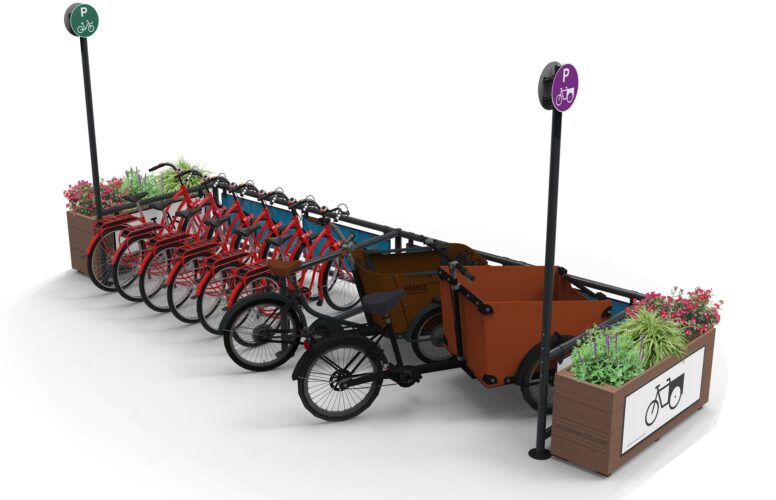

More cycles, cargo bikes and e-scooters on our streets are causing a shortage of parking spaces for these ‘micromoblities.’ Parking must double rapidly based on rising cycling levels, the roll-out of e-scooter hire trials and other factors, says new research from the London Cycling Campaign’s Policy Forum, the Micromobility Parking: Literature Review.
“Decarbonising road transport by 2030 will require a massive expansion of secure, convenient and inclusive parking places for Londoners to leave their cycles and scooters. Current planning is woefully inadequate to this task and the Mayor and boroughs must set their sights higher,” said Pearl Ahrens, Co-chair, Policy Forum.
In the week e-scooter trials started in London, the LCC’s Policy Forum report on micromobility parking good practice provides recommendations for local authorities and operators. Key points include:
‘Micromobility’ parking should increasingly be integrated with transport, public realm improvements and freight and servicing consolidation hubs. In other words, Londoners and visitors should increasingly be able to find parking for a wider range of cycles (including cargo e-bikes), as well as e-scooters, at bus and tube stations and to enable switching of loads from lorries to cycles via ‘last mile’ drop-off hubs.
LCC’s report reviews the literature (with extensive references) on the rapidly changing area of ‘micromobility,’ looking at the design, scope and scale of parking required to enable mass cycling and scooting in London. It examines the facilities required for new micromobilities such as shared (‘dockless’) e-scooters and e-bikes as well as adapted cycles suitable for Disabled people, non-electrified bicycles and e-cargo cycles.
A mass modal shift away from car use to walking, cycling, public transport and new, shared mobility options will be essential to decarbonising London’s roads as outlined in LCC’s Climate Safe Streets report. This also means reallocating road space away from private cars, to meet the requirements of more sustainable modes and ensure equitable access.
This report follows up on the LCC Micromobility and Active Travel in the UK report published last year. Our analysis found that parking is so crucial to the success of our #ClimateSafeStreets plan that it merited a report of its own.
You can read the new report Micromobility Parking: Literature Review here: https://www.lcc.org.uk/wp-content/uploads/2021/06/LCC-Micromobility-Parking-Literature-Review-June-2021.pdf

eScooter corral with planters. Photo credit: Cyclehoop

Visualisation of eBike and cargo eBike corral with planters. Photo credit: Cyclehoop
Keep up to date